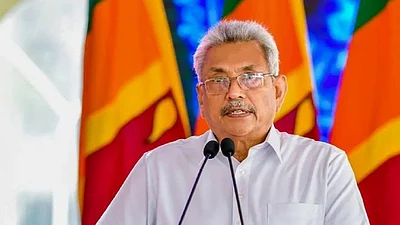If the primary lesson from Sri Lanka is about how politics can affect the economy, the second is about how flawed policy can affect an economy’s prospects.
The country first came into the world’s reckoning within the 1950s when its policy was lauded for welfare programmes that included subsidized rice.
 Distributism seems to possess run sooner than what may well be guaranteed from domestic sources.
Distributism seems to possess run sooner than what may well be guaranteed from domestic sources.
It would function smart advice not just for the three Sri Lankan economists now tasked to require their country out of the crisis but also to the political class of India.

As India’s economy has been growing many states including India have stepped up their welfare spending. Some have distributed bicycles for ladies et al television sets to families.
While no variety of welfare needs is precluded in essence, the general public finances are subject to an accounting constraint. When revenues are limited, free bicycles and television sets force out spending on measures that increase an economy’s productive capacity, which incorporates its endowment of colleges, hospitals and also the infrastructure needed for production. there’s also an ethical issue to be faced.

When welfare is financed by borrowing instead of taxes, future generations pay money for our consumption. The third lesson from Ceylon is to not treat openness to the planet economy as a panacea.
In the 1970s, in an exceedingly switch from avowedly socialist economic policies, the country liberalized trade and capital flows. It is a moot question how this policy reorientation may have worked had a warfare lasting decades not intervened but the reliance on world markets that it led to has not helped the country.
A celebrated theorem in economics, the speculation of comparative advantage, encourages a rustic to concentrate on its production and to depend on foreign trade for goods that it doesn’t produce.
This assumes that there’ll be an unbroken demand for the country’s product.

Sri Lanka’s case shows us why it may be damaging for a rustic to depend on trade for its essential consumer goods. By comparison, the States of India that face a deficit in food is saved by being a part of the Indian Union.
Unlike Sri Lanka, they do have not to earn an interchange to receive food from the national granary, Kerala being the prime example of this arrangement. Sri Lanka’s first task would be to urgently revive its food-producing and agro sector on immediate action.
As far as India is concerned, it must learn from its neighbour’s misfortunes and step-up domestic production across sectors, from oilseeds to renewable energy and defence equipment.

